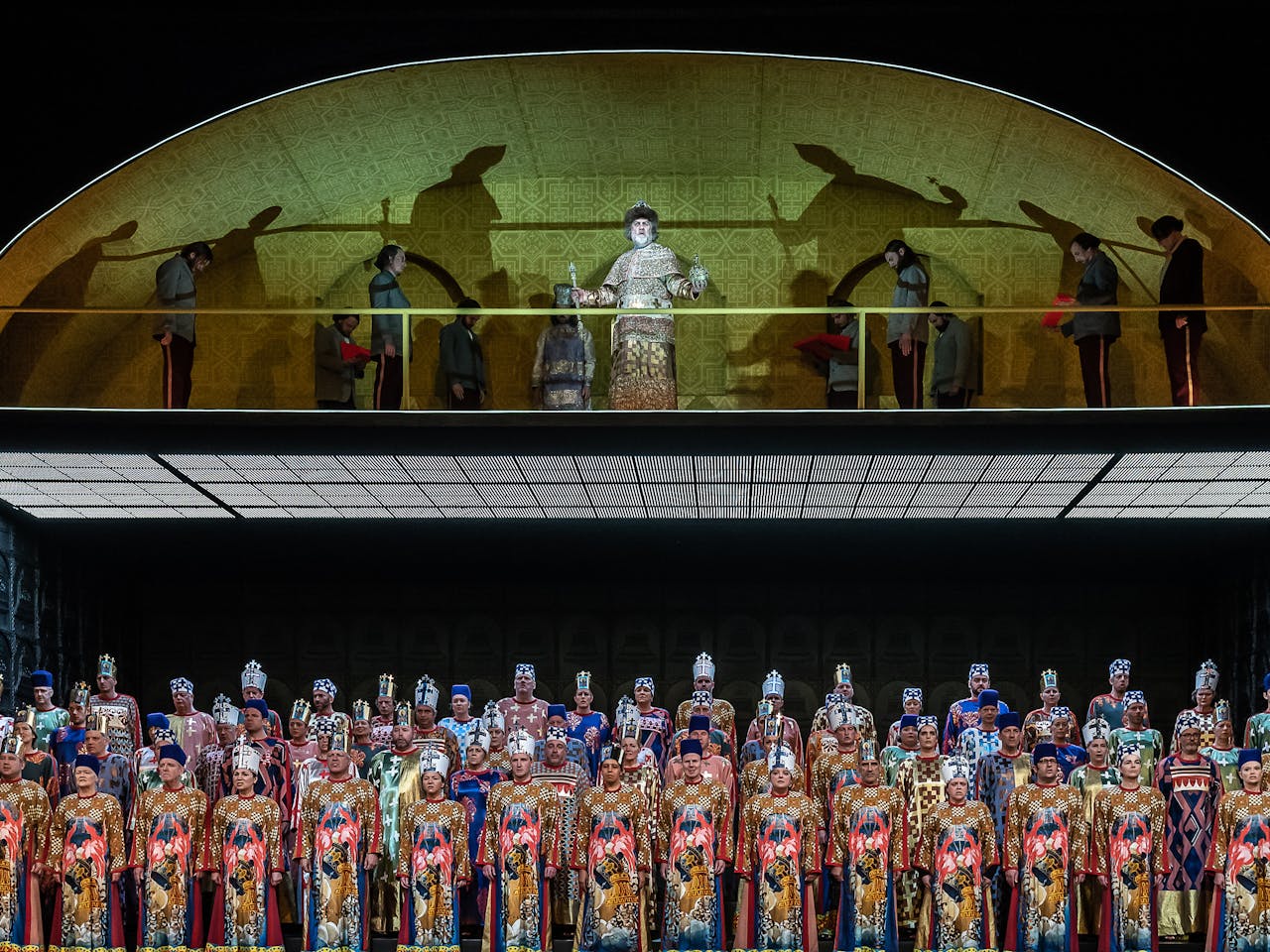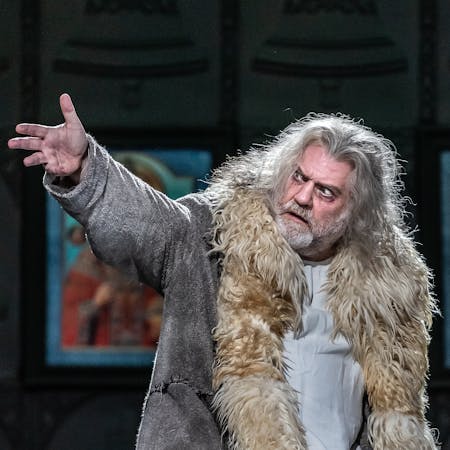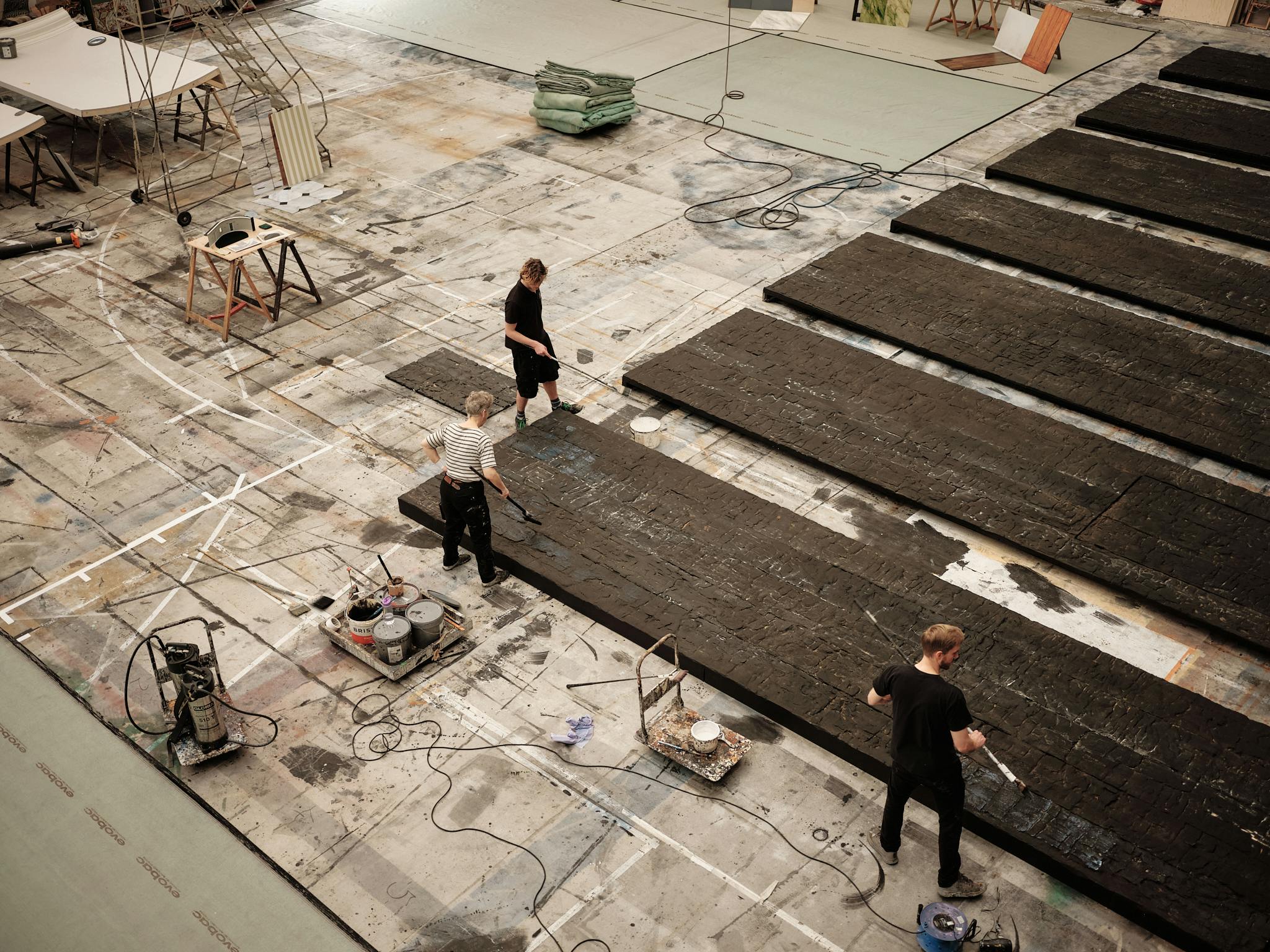Boris Godunov
Boris Godunov
Boris Godunov
Haunted by guilt, Tsar Boris Godunov is losing his grip. Meanwhile, an ambitious young man spies an opportunity to steal the crown. What lengths will they both go to, in pursuit of power?

Richard Jones’ acclaimed staging of Mussorgsky’s awe-inspiring opera returns, starring Bryn Terfel as the tormented Tsar. Mark Wigglesworth conducts.
Richard Jones’ acclaimed staging of Mussorgsky’s awe-inspiring opera returns, starring Bryn Terfel as the tormented Tsar. Mark Wigglesworth conducts.
Deutsche Oper Berlin
Royal Ballet and Opera Principal Julia Rausing Trust
Louise Baring and Eric Franck and Crevan O'Grady & Jane McClenahan
Story

Boris Godunov has been crowned Tsar of Russia in a glittering coronation. But his path to power was bloody. As famines spark unrest, Boris becomes increasingly haunted by his role in the murder of the 9-year-old heir to the throne, Dmitry. Meanwhile, in neighbouring Poland, a young man spots an opportunity to seize power. With Russia in turmoil and his sanity unravelling, can Tsar Boris cling to power? Or will the ghosts of his past return to wreak revenge once and for all?
Background
Dark and brooding, Modest Mussorgsky’s opera is a visceral, shocking psychodrama, exposing the corrupting effects of power. The 'extraordinary' (The Stage) Bryn Terfel returns to the role of the tormented Tsar in Richard Jones’ acclaimed production, while Mark Wigglesworth conducts Mussorgsky’s awe-inspiring score, packed with mighty choruses and spine-tingling drama.
A Time of Troubles and a Pushkin Connection
The opera is based on a historical subject. Its main protagonist is the Russian ruler, Boris Godunov, who reigned from 1598 to 1605 during the Time of Troubles. The opera also depicts the rise of the False Dimitry, who ruled from 1605-1606. The opera is written in Russian, with a libretto by the composer, based on the 1825 tragedy by the Russian poet and playwright, Alexander Pushkin. Pushkin was inspired by the works of William Shakespeare in his play about the tormented Russian ruler.
An opera of many editions
There are multiple versions of Boris Godunov. The original edition (1869) was rejected by the Imperial Theatre on the grounds that it lacked a large female role for a prima donna. Boris Godunov was heavily revised both by Mussorgsky (who submitted another version in 1872) and by the composers Nikolai Rimsky-Korsakov (in 1874) and, later, by Dmitri Shostakovich. The Royal Opera’s production, directed by Richard Jones, uses Mussorgsky’s original version, which takes the form of seven tautly constructed scenes which unfold without interval.
Modest Mussorgsky
Born in 1839 in the Russian city of Pskov, Modest Mussorgsky became a member of the so-called ‘Mighty Handful’ (Moguchaya kuchka), a group of five composers dedicated to founding a Russian national school of music. Like several of his fellow Kuchkists, Mussorgsky had no formal musical training, although his talents as a pianist were evident early on. He joined the St Petersburg Cadet School at the age of 13, where, sadly, his descent into alcoholism began: a path which would ultimately lead to his tragic death a week after his 42nd birthday. His operas, Boris Godunov and Khovanshchina, illuminate dark chapters from Russian history, combining folk motifs and choral writing from Russian Orthodox tradition. He also composed host of vividly original orchestral works, such as Pictures at an Exhibition and Night on the Bare Mountain.
Cast and Creatives
Cast
The cast of this production may vary depending on performance date. Go to cast and dates to see these.
Creatives
Reviews

Access
There is lift access and step-free routes to over 100 seats in the Stalls Circle, Balcony and Amphitheatre. There are 10 steps or fewer to some seats in the Stalls Circle, Balcony, Amphitheatre and the Donald Gordon Grand Tier. All seats in the Orchestra stalls are accessed by 9 steps or more. A handheld bell is rung by Front of House staff to signal guests to take their seats before a performance. The bell is loud and can be startling. The bell is rung approximately ten minutes before the show starts and at each interval.
We have an assistive listening system available to use.
Join our Access Scheme for priority access performance tickets and to personalise your account for your access requirements.
See our Accessibility page for more information on access at the Royal Opera House.

Donate
The Royal Ballet and Opera is a charity and relies on your support. No matter the size, every gift is critical to our work and helps us to secure the future of ballet and opera.
Your donation will enable us to keep extraordinary work on our stages, inspire the next generation and support the Royal Ballet and Opera's community of artists, technicians and craftspeople.
For people, not profit. Making world class ballet and opera for everyone.
Royal Opera House Covent Garden Foundation, a charitable company limited by guarantee incorporated in England and Wales (Company number 480523) Charity Registered (Number 211775)
